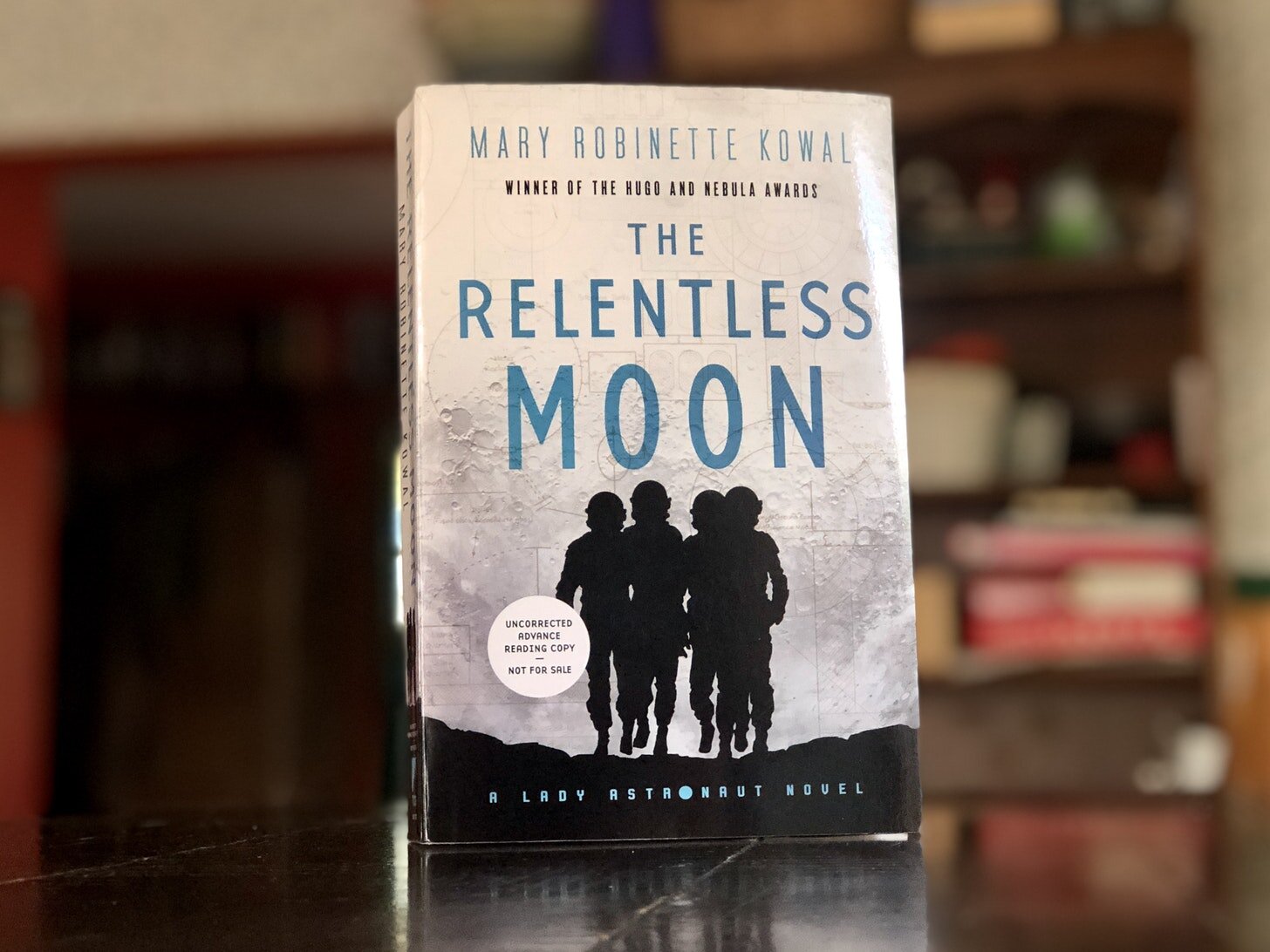Mary Robinette Kowal’s The Relentless Moon
/The history of space is inherently one of exclusion. Mary Robinette Kowal has been writing about this recently for places like The New York Times, pointing out that the snafu with space suits that sidelined the planned all-female spacewalk isn’t just a budgetary thing with NASA, it’s that space is inherently designed for male astronauts, and that because women weren’t included in the US space program until Sally Ride went up in the 1980s, it’s had an impact that ripples out to the present day.
Read my interview with Kowal here.
That focus on inclusivity is something that runs under the hood with her Lady Astronaut series, an alternate history where humanity must figure out how to get into space before the Earth overheats after a massive asteroid impact in the 1950s. In the first two installments (and assorted short stories), we watch as a handful of women and astronauts of color fight to join the program, because what good is a space program designed to lead to permanent habitation if you only send up a select group of people?
In The Relentless Moon, Kowal shifts focus a bit. We follow Nicole Wargin, one of Elma York’s fellow “Lady Astronauts”, who’s dealing both with her standing in the space program and her husband’s impending presidential election. While the International Aeronautics Coalition is working to further build its foothold in space, attitudes toward the space program have begun to sour: some people have begun to question the validity of the science underlining the IAC and need to move off-planet, others are rightfully protesting the resources that are being taken away from people in desperate need, and yet others are motivated by religious concerns. Riots have begun across the United States, and a terrorist cell appears to be working to infiltrate the IAC, with the intention of destroying its efforts, or at the very least, sowing doubt into the future of the program.
Wargin is sent back into space to the growing lunar colony, where she’s tasked with working to help flush out the plot against the IAC. Immediately, a whole new set of problems arise. The rocket that brings her up to the Moon experiences a rough landing, breaking her arm and causing a serious fuel spill that causes numerous problems for the base. A BusyBee (think the lunar craft from 2001: A Space Odyssey, but for one or two people), goes missing, there are power outages, and signs of deliberate sabotage.
If there’s any one thing that’s underpinning Kowal’s work with this series, it’s her spotlight on the systematic issues that exclude people from various parts of the world. But what I appreciate the most about this series is her approach to this particular observation. The Lady Astronaut novels are hard science fiction that don’t ignore the systemic problems running under the hood. It’s a particularly clear-eyed and principled view of the world, recognizing both the things that excite and delight about science fiction, while also pointing out that there are major issues thrown in the way of people.
The Relentless Moon picks up that mission from the prior two books and keeps running it forward. Kowal weaves together a solid thriller as Wargin works to figure out the identity of the saboteur, as well as an empathetic character story as she deals with being apart from her husband, a debilitating eating disorder, and your run-of-the-mill sexism that leeches into every part of the space program. Neither plays a backseat role to the other: both are important to the world that we see, and Kowal’s portrayal here feels raw and honest, a portrait of a complicated character that is driven, principled, and utterly human.
That’s an important thing, I think. 2019 marked the 50th anniversary of the Apollo 11 landing, and in the years since the space race was in full swing, NASA consciously placed those astronauts on a pedestal. They were heroes (rightfully so) who became more than just men (and later women). But they were also deeply human, and looking at the history of spaceflight, you can see those moments when they bucked NASA’s direction and image: John Young brought a corned-beef sandwich with him on Gemini 3; members of the Apollo 15 crew brought along some stamps to the Moon to sell when they got home; and the crew of Skylab 4 turned off their radio and refused to work for a day after they were overscheduled. Couple that history with science fiction’s propensity for supermen, and you have a recipe for characters that aren’t quite believable or realistic, despite the widely-held intention of hard SF to rigorously depict realistic science and characters.
Kowal doesn’t sacrifice realism for human drama, and vice versa: The Relentless Moon is a raw, honest depiction of the challenges of spaceflight and solar system habitation. It’s simultaneously aspirational and optimistic for what the space race might have been, and steeped with a keen understanding of human nature and the problems that we bring with us.


 With the new year upon us, I've wrapped up my list of what I've read all of last year, and taken the books that I've got sitting on a shelf waiting to read for the next 365 days. I've got no illusions that I'll get through this entire list in one year - there's certainly books that I had planned to read in 2010 that I never got around to, but it's a starting point, to be sure.
With the new year upon us, I've wrapped up my list of what I've read all of last year, and taken the books that I've got sitting on a shelf waiting to read for the next 365 days. I've got no illusions that I'll get through this entire list in one year - there's certainly books that I had planned to read in 2010 that I never got around to, but it's a starting point, to be sure.